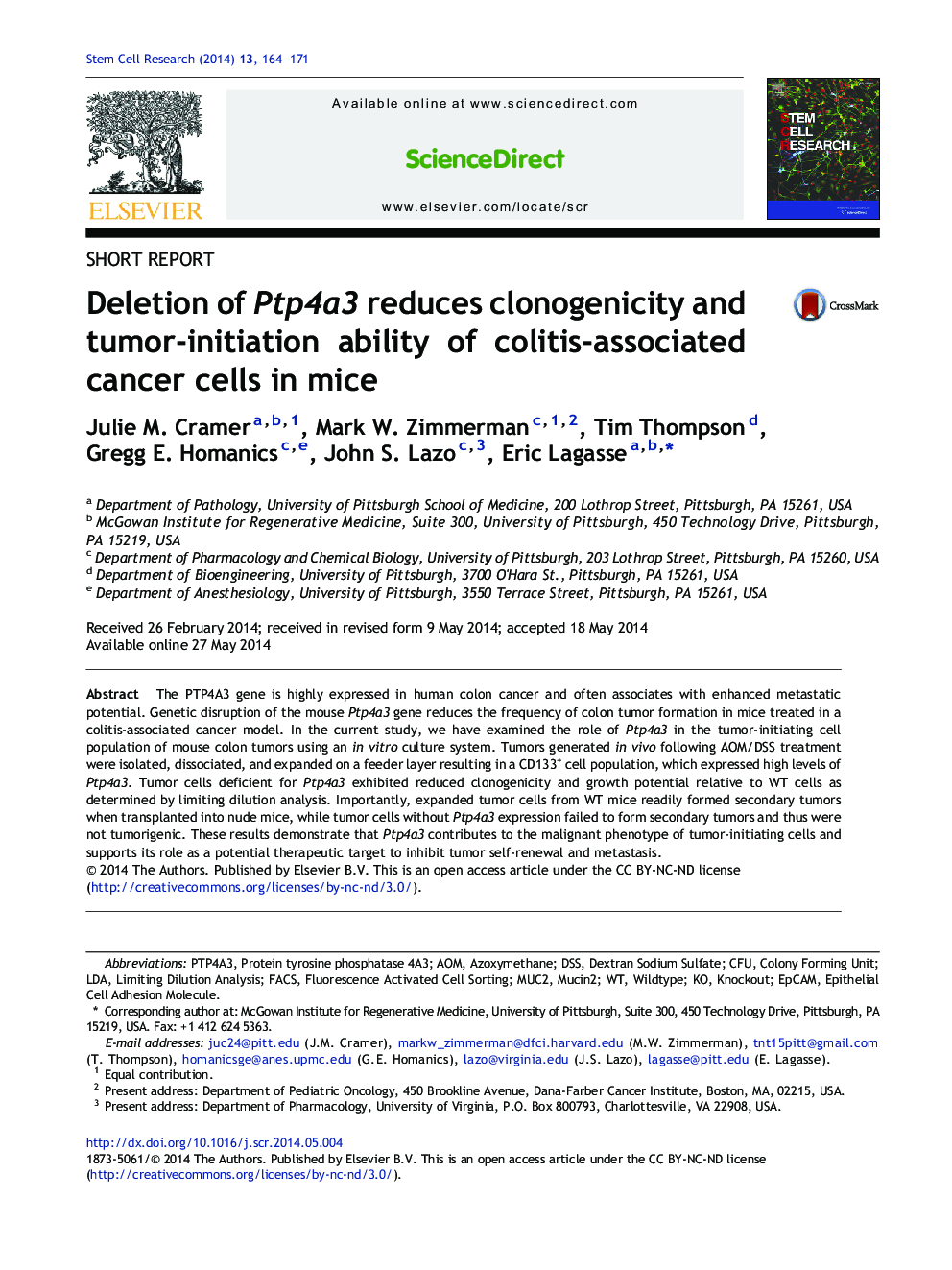| Article ID | Journal | Published Year | Pages | File Type |
|---|---|---|---|---|
| 2094272 | Stem Cell Research | 2014 | 8 Pages |
•Primary mouse colon tumor epithelial cells from the AOM model can be studied by in vitro expansion•Expanded cells express surface markers associated with stemness, proliferation and cancer•Ptp4a3 deficient tumor cells exhibit reduced clonogenicity and self-renewal relative to WT cells•Loss of Ptp4a3 completely ablates the potential of expanded cells to form secondary tumors in vivo•We report a novel link between Ptp4a3 and the self-renewal potential of tumor-initiating cells
The PTP4A3 gene is highly expressed in human colon cancer and often associates with enhanced metastatic potential. Genetic disruption of the mouse Ptp4a3 gene reduces the frequency of colon tumor formation in mice treated in a colitis-associated cancer model. In the current study, we have examined the role of Ptp4a3 in the tumor-initiating cell population of mouse colon tumors using an in vitro culture system. Tumors generated in vivo following AOM/DSS treatment were isolated, dissociated, and expanded on a feeder layer resulting in a CD133+ cell population, which expressed high levels of Ptp4a3. Tumor cells deficient for Ptp4a3 exhibited reduced clonogenicity and growth potential relative to WT cells as determined by limiting dilution analysis. Importantly, expanded tumor cells from WT mice readily formed secondary tumors when transplanted into nude mice, while tumor cells without Ptp4a3 expression failed to form secondary tumors and thus were not tumorigenic. These results demonstrate that Ptp4a3 contributes to the malignant phenotype of tumor-initiating cells and supports its role as a potential therapeutic target to inhibit tumor self-renewal and metastasis.
